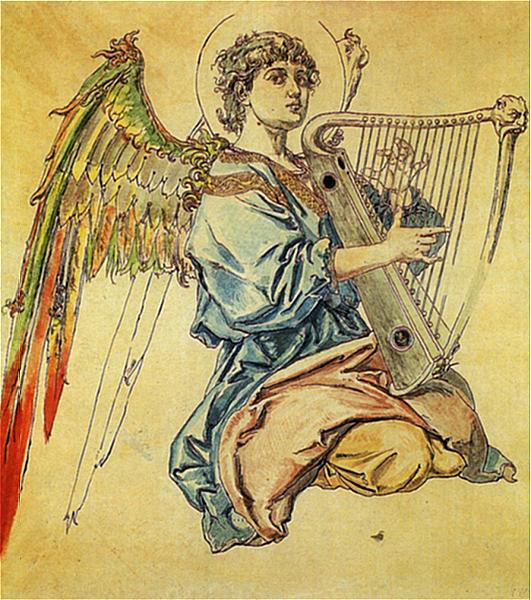 |
| St. Paul on the road to Damascus |
Ephesians 5 reads, speaking to the church in Ephesus:
8 For you were once darkness, but now you are light in the Lord. Live as children of light 9 (for the fruit of the light consists in all goodness, righteousness and truth) 10 and find out what pleases the Lord. 11 Have nothing to do with the fruitless deeds of darkness, but rather expose them. 12 It is shameful even to mention what the disobedient do in secret. 13 But everything exposed by the light becomes visible—and everything that is illuminated becomes a light. 14 This is why it is said:
“Wake up, sleeper,
rise from the dead,
and Christ will shine on you.”
15 Be very careful, then, how you live—not as unwise but as wise, 16 making the most of every opportunity, because the days are evil. 17 Therefore do not be foolish, but understand what the Lord’s will is. 18 Do not get drunk on wine, which leads to debauchery. Instead, be filled with the Spirit, 19 speaking to one another with psalms, hymns, and songs from the Spirit. Sing and make music from your heart to the Lord, 20 always giving thanks to God the Father for everything, in the name of our Lord Jesus Christ.”
Paul uses the same images as the Gospel, of light and fruit, making it plain he refers to the same call. And he specifies what God's will is: “speaking to one another with psalms, hymns, and songs from the Spirit.”
That is, literally, making poetry and music.
Why these and not the other arts? I suggest purely because most early Christians had little practical opportunity to express themselves in other arts. Other arts require the use of specialized equipment and materials--not available to the poor Jesus called. They also require public performance or leave permanent artefacts—not advisable to the oppressed Jesus called, in a time when it was illegal to be a Christian. That leaves singing and poetry, an oral form, of necessity.
 |
| Heaven is owning your own instrument. |
Nevertheless, churches, once they became possible, have ever since become the prime repositories in the West of all that is beautiful made by human hands: the finest sculpture, painting, music, fresco, incense, flower arrangements, illuminated manuscripts, garments. This fact is sometimes obscured by the relatively recent transfer of many of these artefacts into secular museums and concert halls. In the words of the Youth Catechism of the Catholic Church, “we decorate the place of God’s presence with the most beautiful things we have: flowers, candles, and music.”
It is telling too that Paul contrasts the creation of art directly with getting drunk on wine. This, and habitual drug use more generally, is the classic temptation of the depressed and of the artistic--”self-medication.”
 |
| The cosmos is sometimes portrayed as God's own vast musical instrument: "The Music of thr Spheres," made by the stars and planets in their motions. |













No comments:
Post a Comment